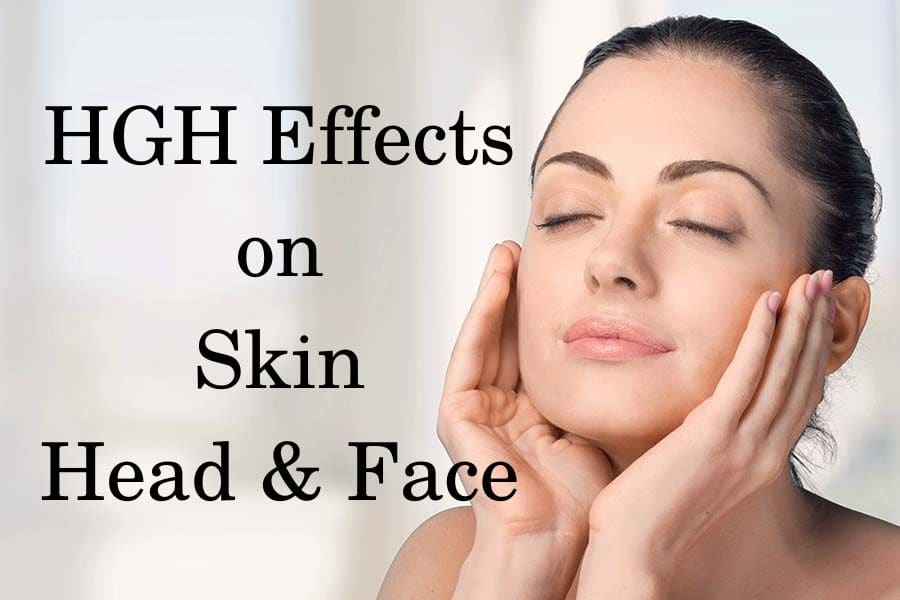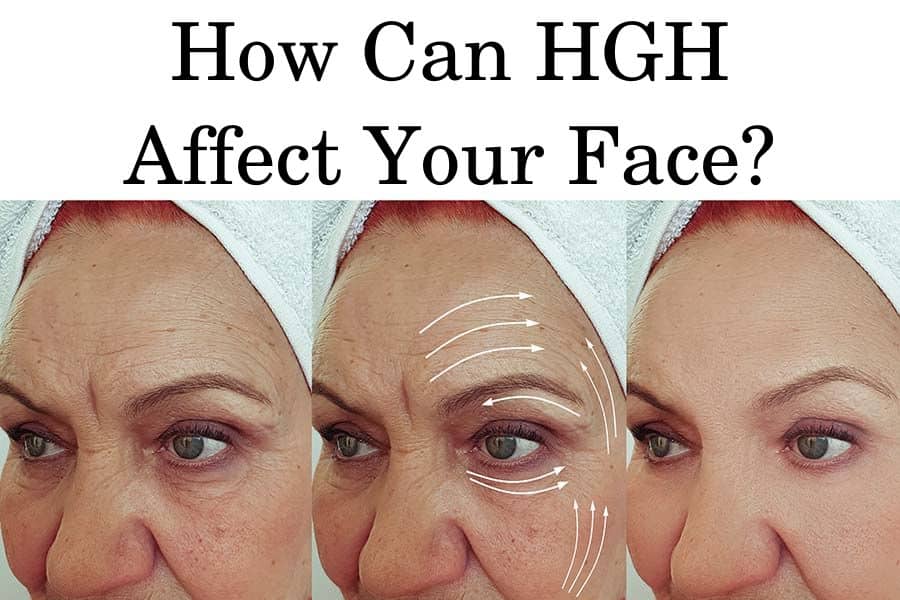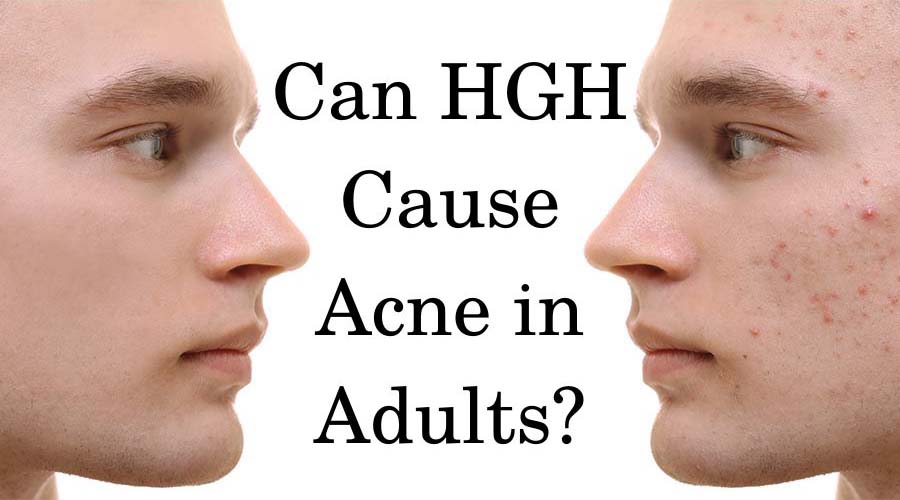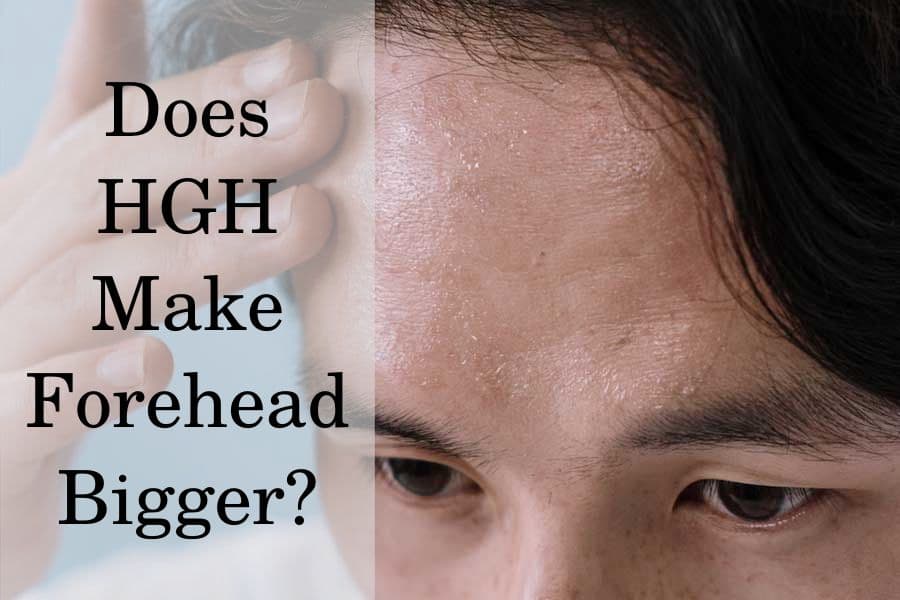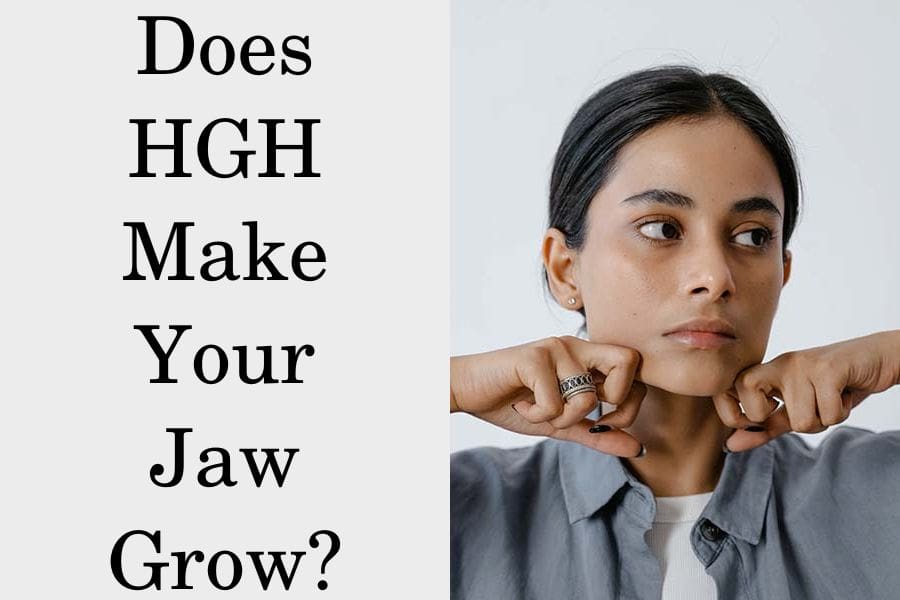The human growth hormone (HGH) is one of the hormones that affect the health and appearance of your skin. This is why problems such as paleness, dryness and thin skin are rather common among patients with GH deficiency.
In such cases, HGH injections can help restore the normal appearance of the skin, and support its hydration, thickness and elasticity.
These effects are rather common and often desired amongst patients on HGH therapy, as people believe it will make their skin look younger and reverse the signs of aging.
Yet, it is important to note that while skin thickening may lead to some visual benefits, it does not reverse skin aging. What is more, taking supraphysiological doses of HGH for prolonged periods can stimulate the thickening of other structures as well such as cartilage and bones.
Needless to say, such effects are not beneficial nor desired by the patients, as they can lead to facial changes such as enlarged ears, nose, lips, and tongue, prominating eyebrows, and jaw.
If you are taking high doses of HGH for long periods, this can change your facial features significantly and even permanently
Thankfully, the occurrence of these adverse reactions depends specifically on HGH dosage, and they can be safely avoided if your serum GH levels remain within the healthy ranges during your treatment.
How does HGH change your face?
HGH can affect several aspects of your face, including your skin, your lips, your nose, and even your jawline.
The hormone stimulates collagen production in the skin, and more specifically in the dermis.
Dermis is the middle layer of the skin, which is made of collagen and ensures the strength, elasticity, and rigidity of the skin
HGH stimulates the collagen-producing cells in the dermis called fibroblasts which results in increased skin thickness. As a result, the skin on your face may look stronger and better hydrated.
Revitalize your skin with HGH! Experience stronger, deeply hydrated, and youthful radiance. Begin your journey to a radiant glow now!
What are the side effects of HGH on the face?
When first starting HGH therapy, or if your growth hormone levels are excessively high, this can also lead to increased water retention that affects the whole body.
Common complaints may include edema, joint pain, headaches, and a puffier look. This side effect can also make your face look puffy during HGH therapy.
While normal HGH levels are important for normal collagen production, prolonged exposure to high growth hormone levels can lead to an increase in cartilage tissue as well.
In fact, studies report that patients suffering from conditions like acromegaly which manifest with excessive GH levels may develop facial changes such as enlarged nose, lips, ears, and tongue.
These changes can also occur due to taking supraphysiological doses of HGH therapy for prolonged periods of time.
How to prevent these changes
To prevent that and ensure a safe HGH treatment, you must be under monitoring by an experienced medical doctor.
Regulating the dosage and maintaining serum HGH and IGF-1 levels within the reference ranges can effectively prevent such side effects and lead to other benefits of HGH.
Most of these adverse reactions are also reversible after therapy discontinuation, except for enlarged cartilage in the nose and ears.
How does HGH affect the skin?
Because of the effects of HGH on the production of collagen in human skin, HGH injections are often professed as a remedy that can reverse the signs of aging by improving skin elasticity, reducing wrinkles, and tightening loose skin.
Indeed, patients with growth hormone deficiency often complain of thin, dry skin, especially if their condition had its onset during childhood. However, these complaints are due to reduced activity of the skin’s fibroblasts.
Will HGH tighten loose skin?
Taking HGH can reverse these effects by increasing the levels of collagen in the dermis. This may improve the overall skin elasticity and thickness, and may even tighten loose skin but it cannot reverse the aging process of the dermis and epidermis or reduce wrinkles.
The benefits of the growth hormone regarding thickness and elasticity do not extend to the epidermis. Therefore, the effects of HGH therapy on your face and skin may not be as significant as most people claim.
If your HGH therapy dosage is too high and you are exposed to supraphysiological amounts of growth hormone for prolonged periods of time, it can lead to the formation of thick skin with large pores.
Skin changes that may also affect the face due to growth hormone excess include oilier skin and increased sweating. These changes are reversible by reducing the dosage of HGH therapy or discontinuing it completely.
Does HGH cause acne?
Studies show that the occurrence and severity of acne are associated with several hormones, including the anabolic mediator of growth hormone – IGF-1.
According to the researchers, IGF-1 is more tightly associated with the occurrence of acne in women rather than men, but it is considered to play a role in both genders.
One of the potential mechanisms is that HGH and IGF-1 lead to the hypertrophy of skin glands which increases the production of sebum.
Can HGH injections give you acne?
HGH therapy leads to a rise in IGF-1 levels, but if the medication is taken to increase your serum growth hormone levels within the physiological range, you are not likely to experience acne. That is as long as you are not predisposed to developing acne in the first place.
Thus HGH therapy will not help reduce acne and in fact, may make it worse. For example, if your HGH dose is too high or you have growth hormone excess due to conditions such as acromegaly, this may increase your risk or the severity of your acne.
There are even studies reporting patients with acromegaly that have developed severe acne related to the primary endocrinological condition.
Can HGH make your head bigger?
HGH can not lead to an increase in the size of your head, as long as its levels remain within the physiological ranges. However, exposure to high growth hormone levels over long periods of time can lead to the thickening of bone tissues.
That’s because HGH and IGF-1 stimulate the growth and function of bone-producing cells called osteoblasts.
Supraphysiological HGH levels can lead to an increase in the thickness of parts of the skull such as your brow ridge and jaw bones.
Excessive levels of HGH can make your eyebrows more prominent and your jaw may become wider
Ultimately, these effects may lead to coarsening of your facial features and may make your forehead and overall head size look bigger.
The enlargement of the forehead is also known as frontal bossing, and it is a symptom often observed in patients with acromegaly. Thus, the external size of the skull may increase and your head may look bigger due to excessive GH levels.
These adverse effects can be avoided completely during HGH therapy by regulating the dosage under medical supervision and maintaining serum growth levels within the reference ranges.
Unfortunately, if you have been exposed to high HGH levels for prolonged periods of time and these side effects have already occurred, they are permanent and cannot be reversed.
Does HGH make the jaw “square”?
Because of the effects of HGH on bone and cartilage tissues, excessive amounts of the hormone can make your jaw grow in size and look wider.
The jaw bone also known as the mandibula attaches to your skull via the temporomandibular joints. According to studies, the so-called condylar cartilage found in these joints is more prone to undergo remodeling when under various stimuli including hormones.
That’s likely because of a higher percentage of progenitor cells in the condylar cartilage, which makes it more sensitive to growth hormone and IGF-1.
Studies report that this is why excessive HGH and IGF-1 levels can lead to mandibular overgrowth and prognathism which makes the jaw stick out compared to the rest of the face.
Protruding lower jaw, as well as dental diastema, are also common in acromegaly
HGH can also lead to the formation of ossification inside the cartilage which can result in arthritis affecting different joints in the body, including the mandibular joint. Ultimately, this can lead to jaw pain in patients exposed to extremely high HGH levels.
Get a free consultation with our medical expert for any questions about hormone replacement therapy

